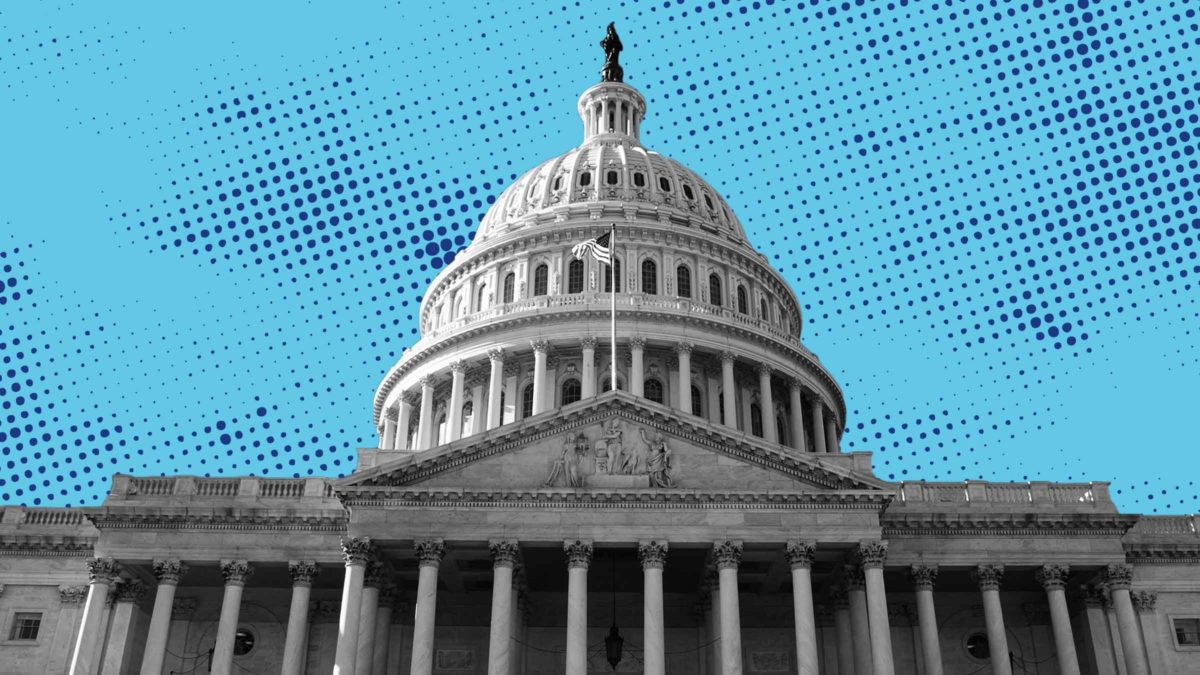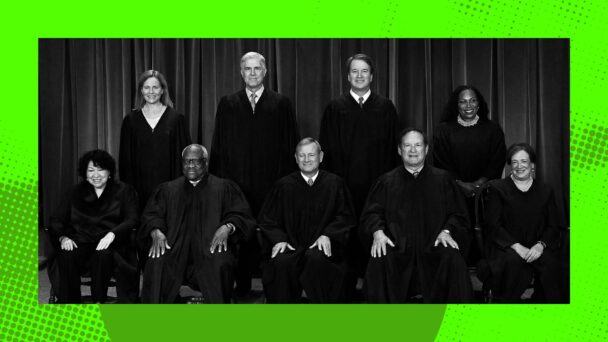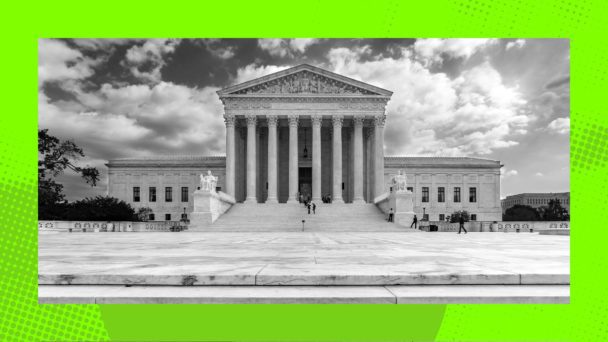The justices on the Supreme Court appear to think that they’re untouchable. Secure in the knowledge that they rule for life, the justices take away fundamental rights and conflate public resentment with evidence of their own principled decisionmaking. They flout regulations governing recusal and financial disclosure. They refuse to adopt an enforceable ethics code—and have the audacity to argue that Congress can’t make them do so.
Congress, you’ll remember from 8th grade civics, is a co-equal branch of government that the Constitution empowers to exercise checks against a rogue judiciary. A new paper by Harvard Law professor Mark Tushnet discusses reform proposals that Congress could threaten to implement that “would affect the Court immediately upon adoption,” thus limiting the justices’ capacity to take away rights from whomever they decide doesn’t deserve their benefit.
One of the most interesting ideas Tushnet offers is incentivizing justices to retire by making their jobs harder. Each term, Supreme Court justices hire a handful of clerks—recent graduates from fancy law schools, and the occasional high-profile racist—to do much of the actual work of writing opinions. Tushnet suggests that Congress reduce the number of clerks the justices can hire. (He writes that he has raised this possibility “regularly,” but so far, has not had any success.)
Here’s how it would work: Congress has the power of the purse, and although the justices have been deciding fewer and fewer cases, their number of clerks has remained the same or even increased. And as Tushnet explains, justices tend to outsource more of their opinion-drafting to law clerks the longer they stay on the bench. So, if old justices have to do more of their own work, they might just choose to retire instead.
Personally, I’m partial to slashing the Court’s air conditioning budget when D.C. starts to enter swamp season. But the point is: Changing the conditions of the justices’ work can make it feel more agreeable to get off the bench than remain on it. These proposals need not even pass in order to matter: Tushnet refers to some political science research showing that the mere introduction of Court-curbing proposals may impact judicial behavior.
Cutting the clerkship pool isn’t the only step Congress could take, of course. Tushnet also discusses the viability of more frequently-discussed Court reform proposals, such as term limits, jurisdiction stripping, and expansion. (He is skeptical that term limits legislation would apply retroactively, and would thus leave the sitting justices right where they are.) But since Congress’s checks-and-balances muscles have basically atrophied, budget cuts could be a light lift to start.
Tushnet’s paper is not so much about the merits of any particular reform. Rather, it focuses on the types of constitutional questions each proposal may raise. And these questions are more political than legal: Anyone who calls a given Court reform proposal “either obviously unconstitutional or obviously constitutionally permissible is blowing smoke,” Tushnet writes. “What’s at stake—that is, how you think the questions should be resolved—depends upon your vision of how to run a well-designed system of democratic self-governance.” In other words, Democrats are really just limited by their own imagination and strength of will—provided they can win the political power necessary to implement it.




